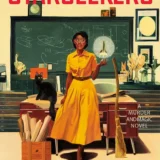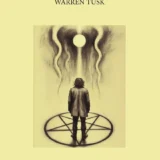Let me first sum up what I’ve seen over the past couple of days:
the most impressive being the sheer volume and sheer vitriol of comments posted to various twitter feeds even before the award ceremony started.
It was utterly disgusting. It was also quite humorous at times. I can hardly think of anything funnier than some shiny-eyed cool-aid drinking yutz, completely and utterly clueless about fandom, trying to use some of our best traits as insults against us.
I’ve seen faneds and LOC writers hurl some pretty vicious things at each other, but at the very least, every single one of them knew something about that which they were writing. And unlike these days, those feuds were conducted under an umbrella of shared understanding and, at worst, grudging respect.
Mr. George Martin hit that nail on the head during the pre-awards show last night when he remarked that the internet seems to have exacerbated fannish debate. He was right also when he said that the internet has opened things up to more people (fandom IS becoming truly international), which is a positive thing, but it has also exposed fandom to an element that it has largely avoided over the years. As we have seen in so many stories, technology is a mixed blessing.
I’ve seen and heard a lot of good people doing their damnedest to put the best possible face on this whole affair, some succeeding marvelously, others understandably unable to contain their true emotions.
I watched David Gerrold and Tananarive Due deliver a sterling performance under circumstances that were understatedly difficult.
I watched Bob Silverberg masterfully drain the tension in the room in a way that probably only Bob could have; when he was introduced, it was noted that he had been attending Worldcon since they first gave out the Hugo Awards. (He won one!). Bob’s calm demeanor and his ability to convincingly explain that he had seen it all before was a tonic. It was also an in-the-flesh illustration of one of fandom’s greatest assets, its history of shared experience.
I watched Connie Willis help us recover from the In Memorium ause (truly moving – it seems that we lose more every year) and let us all know how she really feels, without it turning into a political rabble-rousing speech. Connie was also an anchor to the past, another reminder that we are all part of a continuum that has weathered many controversies since (and including) 1939.
I saw many fans turn into FANS, both during the ceremony and online in the many weeks leading up to last night. I’ve also seen the dichotomy of result between newfen who arrive full of openness and curiosity and those who arrive with preconceived notions. A reminder that when one visits with a new culture, the proper approach is to experience how that culture does things, rather than trying to tell that culture what to do.
I saw a group of self-declared outsiders continue to grossly misunderstand what fandom, Worldcon and the Hugo Awards are all about. They see wide ranging consensus as conspiracy; they see cooperation and a desire to minimize conflict as socialism (as if that is always a bad thing) and weakness; they speak of the awards and the conventions in economic and competitive terms; they introduce religious and financial arguments; they treat disagreement as heresy; they use threats of violence in their arguments; they seek to divide and conquer, rather than to build and experience.
This is what I’ve seen, heard and read.
As to how I feel about it?
Despite the bleatings, this was an unquestioned victory for FANS and FANDOM.The Hugo Awards have not been “burned to the ground”, no nukes were detonated over Spokane.
Further, the message from Fandom was very loud, very clear and very direct: organized campaigning for the awards will lead to nothing but embarrassing results for the campaigners.
Although speculative in nature, I also believe that this year’s results are a harbinger of things to come. The campaigners now have more data than ever before and will use this to try to game both the nominations and the final vote next year. Their rhetorical spew has never stopped – fandom would rather destroy the Hugo Awards than let representatives of unpopular politics win; despite the research, the awards really are controlled by a cabal; voting No Award is the result of campaigning; so much for fandom’s claimed love of diversity. They have demonstrated that they can successfully recruit upwards of 1500 individuals – all of whom are ALREADY eligible to nominate in 2016. Let that sink in for a moment.
Their logic is twisted but unassailable from their point of view.
None of their nominated works – with the exception of Guardians – won. This does not mean that the works they nominated were considered unworthy of the award, it means that there was an organized campaign against their politics, their way of life, a strike for communism, atheism and ultimately the end of our world as we know it.
Voting No Award means everyone who did so is an Eloi, led to the slaughter by evil Morlocks. This is joined at the hip with the false equivalence of Voting No Award means No Works Were Read. The obvious logic is that if their nominated works had been read, the voter would be so moved that they would reject voting against it. (How utterly bankrupt that notion is in the face of a category featuring three works by the same author. By their logic, if one of those works had won, it would mean that we both accept and simultaneously reject their arguments.)
That there must have been some skulduggery because so many more people bought supporting memberships than there were ballots cast.
THEY were the ones who brought in so many new voters – we ought to be thanking them for making the Hugo Awards relevant again.
If the community does anything but hand them all the awards, it means that the community’s embrace of inclusion and diversity is hypocritical at best.
And this one: that mentioning the eligibility of a work is the equivalent of campaigning.
If we were to set up a hierarchy of the right way to bring a work to the voter’s attention, it might look something like this:
- 10. Buying votes and using money, power and influence to deny others their votes, which is worse than –
- 9. Buying votes and filling out the ballots yourself. Which is worse than –
- 8. Buying votes for yourself/a slate with promises of favors and influence, hoping that your minions will vote the right way, which is worse than –
- 7. Organizing a group of works and creating a slate that you recruit voters to, which is worse than –
- 6. Actively campaigning for your own works and attempting to recruit voters, which is worse than –
- 5. Mentioning your eligible works and encouraging/requesting that your fans and readers nominate and/or vote for you, which is worse than –
- 4. Mentioning that your work is eligible and leaving the decision up to the voters, which is worse than –
- 3. Mentioning that your work is eligible within the context of general promotion for the awards. Which is worse than
- 2. Hope that others promote your work through reading lists, club discussions, reviews. Point others to those efforts. Which is worse than –
- 1. Doing nothing. Allow your readers and fans to make their own selections and hope that your work is recognized, nominated and voted for.
I’m generally ok with options 1 thru 3, though I’d prefer to see number 1 prevail. Continuing to engage in #s 2 and 3 will continue to provide grist for their mills. There’s nothing for it – authors these days need to self-promote, and self-promoting for an award is necessarily included in such efforts. But we need to be aware of how such things can be twisted and used by others who do not view the world in the same ways we do.
To wrap this up: I am desperately containing my desire to do a happy dance and gloat over the outcome. I’m very pleased that Amazing Stories was one of, if not the first, to advance the No Award option as a solution to this year’s troubles. I was hopeful that it would work and a tad surprised that it worked as well as it did. (I’m still bothered a bit by the confusion over methodology – I suggested a considered use of No Award and somehow that got turned into “vote No Award on everything” – the so-called nuclear option – but be that as it may….)
I’m also pleased and a tad surprised that, based solely on my perceptions of fandom (admittedly informed by over four decades of experience) I was able to predict the outcome of the awards with 82% accuracy. (Maybe I’ll start reading palms.) But in reality it wasn’t all that hard to do. If you know fans, you know that one of the things that they will ALWAYS balk at is being told what to do and how to go about doing it. I’m dead certain that if John Scalzi, Rachel Swirsky, Jim C. Hines and Patrick and Teresa NIELSEN HAYDEN got together and demanded that we all vote for their slate of recommended works, we’d have the exact same reaction and reject them out of had with a majority of No Award votes. Even if they would do a far better job of campaigning than what we’ve witnessed this year.
Of course, the campaigners would have us believe that the above is EXACTLY what happened this past Saturday evening. Sure it was. Lets hope that they continue to believe that, as it will ensure that we continue to see similar outcomes.
So what’s the take-away?
Fandom is alive and well and perhaps even stronger in its convictions than it has ever been before.
The world has become aware of Worldcon and the awards to an unprecedented degree (and apparently thinks watching the Business Meeting is pretty cool)
We learned just how small (and small minded) the haters are. (Tempered by the fact that they’ve learned this also and will undoubtedly be TAKING. ACTION.)
It’s not over yet, but there is good reason to believe that by this time next year, we will have gotten past the worst of it.
Many, many people are wondering what happened in Baltimore when close to a thousand fans were given wooden mallets. (Hint: we almost brought the hotel down.)
And one final thought:
Lots of people claim that the Hugo Awards are given out for excellence and quality of work, but this is only one component. The awards are actually given out as appreciations for contributions to the community. This is why, for example, Ginjer Buchanan was awarded Best Editor in a prior year. Rather than being a sympathy award (Ginjer was retiring and would no longer be eligible), the fans recognized that while she might not have risen to the top of the heap in any one particular year, her contributions to the field, both as a fan and as a professional, were deep and mighty.
More globally, this is why we have seen awards for works and people that often leave outsiders puzzled: was Asimov’s The God’s Themselves really the best novel that year? Maybe, maybe not, but when votes for appreciation are added to votes for quality and import, it rose to the top. The same conclusion can be reached about many winners over the years.
The Hugo Awards are about excellence in the field, but the excellence referred to is not limited to a single example of someone’s work and efforts.
Steve Davidson is the publisher of Amazing Stories.
Steve has been a passionate fan of science fiction since the mid-60s, before he even knew what it was called.








